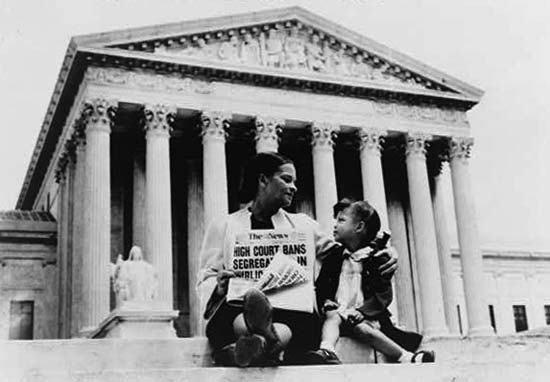[timeline_excerpt]Students occupied the offices of the Political Science Department, demanding greater control over the hiring of faculty. Check out this documentary on the occupation![/timeline_excerpt]
Author: Aishwarya Singh
-
Creation of the Minimum Cost Housing Group.
[timeline_excerpt]The Minimum Cost Housing Group (MCHG) of McGill’s School of Architecture is a research unit concerned with the human settlement problems of the poor. Its research has primarily focused on poor countries, but it has also conducted research projects in wealthier countries. Research has been carried out on construction materials, small building components, low-cost sanitation and servicing systems, human settlements planning, and urban architecture. For more information about the unit’s past projects, click here![/timeline_excerpt]
-
Congress for Black writers held at McGill between October 11 – 14.
[timeline_excerpt]The second international Congress for Black Writers was held at McGill, and brought together intellectuals of African descent to examine, discuss, and debate concerns related to culture and identity. The event was attended by thinkers and activists from Canada, the United States, Africa, and the Caribbean – including C.L.R James, Stokely Carmichael, Miriam Makeba, Rocky Jones, and Walter Rodney. It took place during a historic moment of transnational social and political change.[/timeline_excerpt]
-

Former McGill professor Otto Klineberg delivers expert testimony in the Brown v. Board case.
[timeline_excerpt]Brown v Board of Education was the landmark Supreme Court case for school desegregation in the United States. McGill professor Otto Klineberg’s research into the intelligence scores of Black students was crucial to the case’s victory. Klineberg found that students in cash-poor Southern Black schools averaged lower scores than Southern whites and Northern Blacks and whites. However, when these same students were moved to integrated and higher quality schools in the North, their scores eventually equaled those of Northern-born Black students. The scores also nearly equaled those of white students, with the discrepancy attributable to social and economic difference. Klineberg’s research suggests that there is no biological basis for racial superiority and as such Black and white students should have academic equal opportunities.[/timeline_excerpt]
-

Macdonald College opens in Ste-Anne-de-Bellevue, named after William C. Macdonald, one of the University’s most generous benefactors.
[timeline_excerpt]William Christopher Macdonald (1831-1917) was a major donor to McGill University and its chancellor from 1914 to 1917. By the end of his life, Macdonald’s gifts and bequests to McGill exceeded $13 million, the equivalent of nearly $300 million today. MacDonald’ wealth allowed him to make countless contributions to McGill. On a number of occasions, Macdonald purchased properties surrounding McGill when commercial interests such as a hotel threatened to overwhelm the campus. He financed the pioneering nuclear physics research that earned Ernest Rutherford a Nobel Prize. Of particular importance to him was his work to improve rural education. Macdonald joined forces with federal agricultural commissioner James W. Robertson, and together they funded and developed institutions for agricultural education in rural communities throughout Eastern Canada. This is now referred to as the Macdonald-Robertson Movement. The creation of Macdonald College in 1907 is regarded the movement’s crowning achievement, providing important infrastructure and social services to under-served rural communities.[/timeline_excerpt]
[timeline_content]
William Christopher Macdonald (1831-1917) was a major donor to McGill University and its chancellor from 1914 to 1917. By the end of his life, Macdonald’s gifts and bequests to McGill exceeded $13 million, the equivalent of nearly $300 million today. Born to a wealthy family in Prince Edward Island, Macdonald renounced Catholicism and became a merchant in Boston, New York, and finally, Montreal. In 1858, he and his brother Augustine began importing tobacco from Louisville, Kentucky. In 1866, Macdonald became the sole proprietor of W.C. McDonald Tobacco Merchants and Manufacturers, rebranding with a heart-shaped tin label reading: “tobacco with a heart.” Macdonald was openly disgusted by both smoking and his business, which perhaps accounts for his persistent philanthropy.
Macdonald’s tobacco company grew from a small business into the powerhouse of the Canadian tobacco industry during the American Civil War. At this time, the vast majority of American tobacco was produced in Southern states. Wartime sanctions against the South resulted in an immense tobacco shortage in the North. Macdonald imported tobacco from the Confederacy and processed it in his Montreal factories before exporting it to Northern Union states. Essentially, Macdonald’s tobacco company provided a way for Northern merchants to bypass wartime economic sanctions and profit from slave labour. MacDonald also reportedly used unregulated and child labor in his factories, though not to an extent that was anomalous for his historical period.
MacDonald’ wealth allowed him to make countless contributions to McGill. On a number of occasions, Macdonald purchased properties surrounding McGill when commercial interests such as a hotel threatened to overwhelm the campus. He financed the pioneering nuclear physics research that earned Ernest Rutherford a Nobel Prize. Of particular importance to him was his work to improve rural education.
Macdonald joined forces with federal agricultural commissioner James W. Robertson, and together they funded and developed institutions for agricultural education in rural communities throughout Eastern Canada. This is now referred to as the Macdonald-Robertson Movement. The creation of Macdonald College in 1907 is regarded the movement’s crowning achievement, providing important infrastructure and social services to under-served rural communities. While MacDonald contributed heavily to the University’s vitalization and engaged in relatively socially progressive philanthropy, much of the wealth that allowed him to do so resulted from the exploitation and oppression of enslaved people.[/timeline_content]
